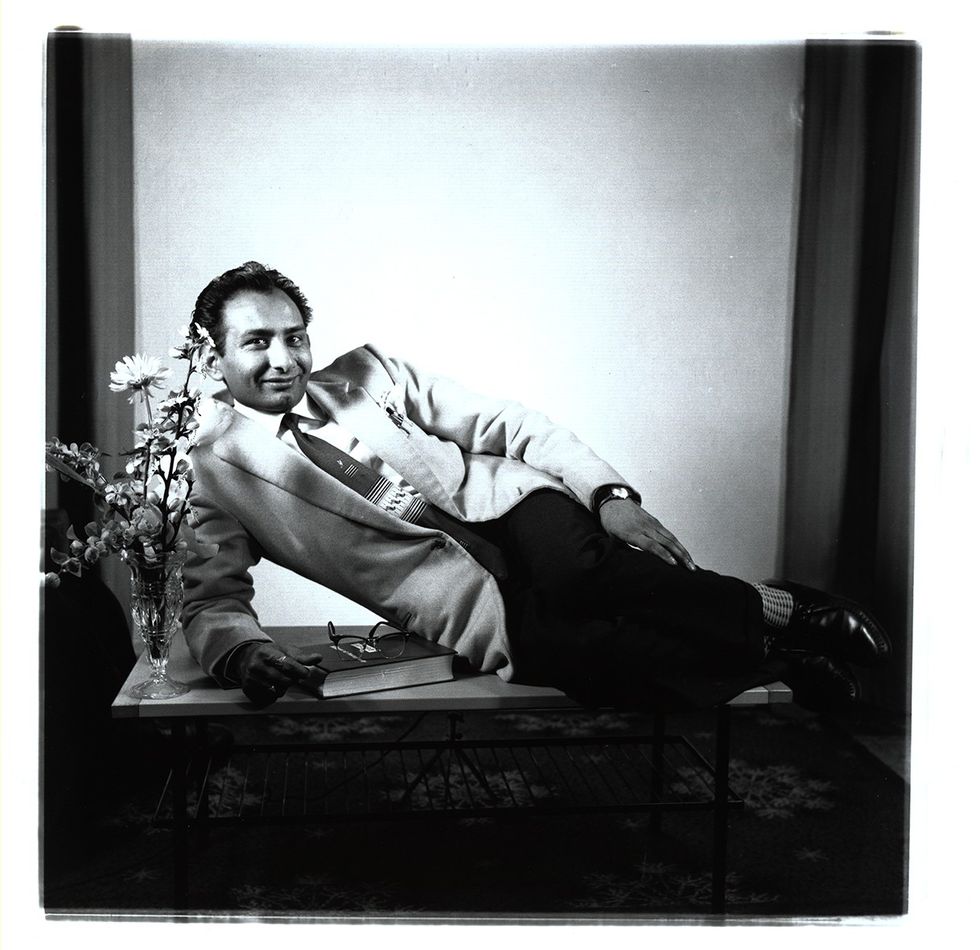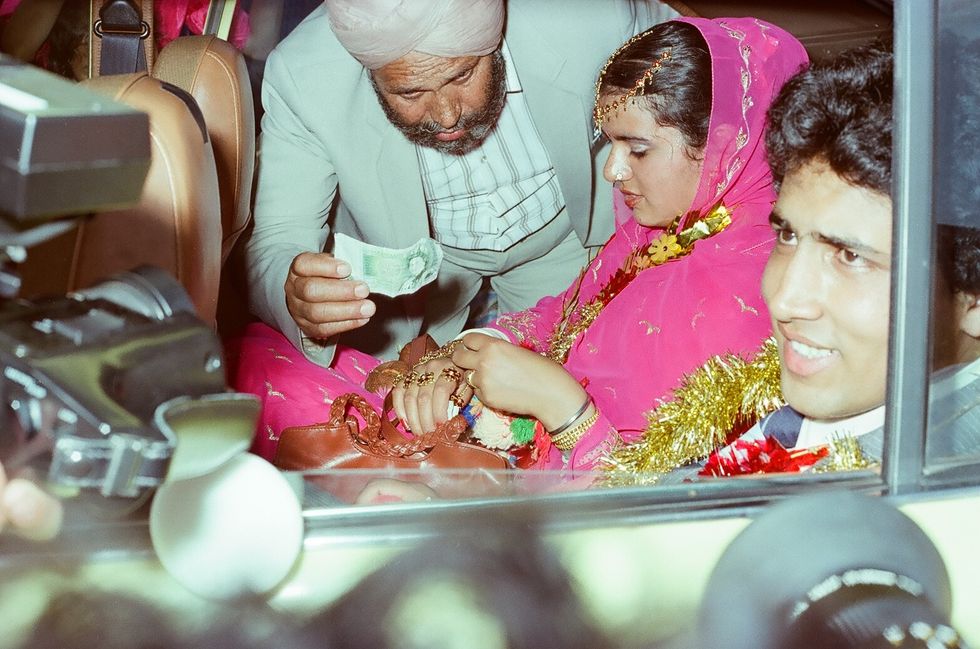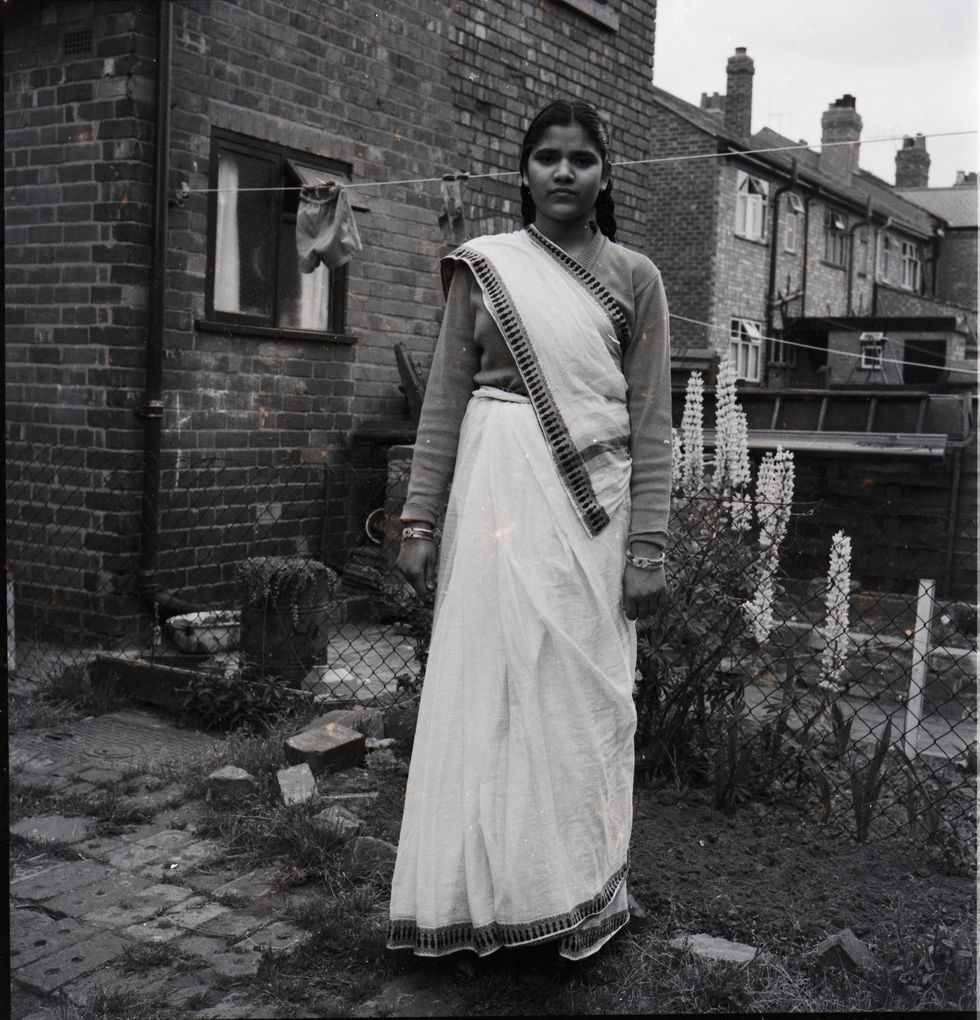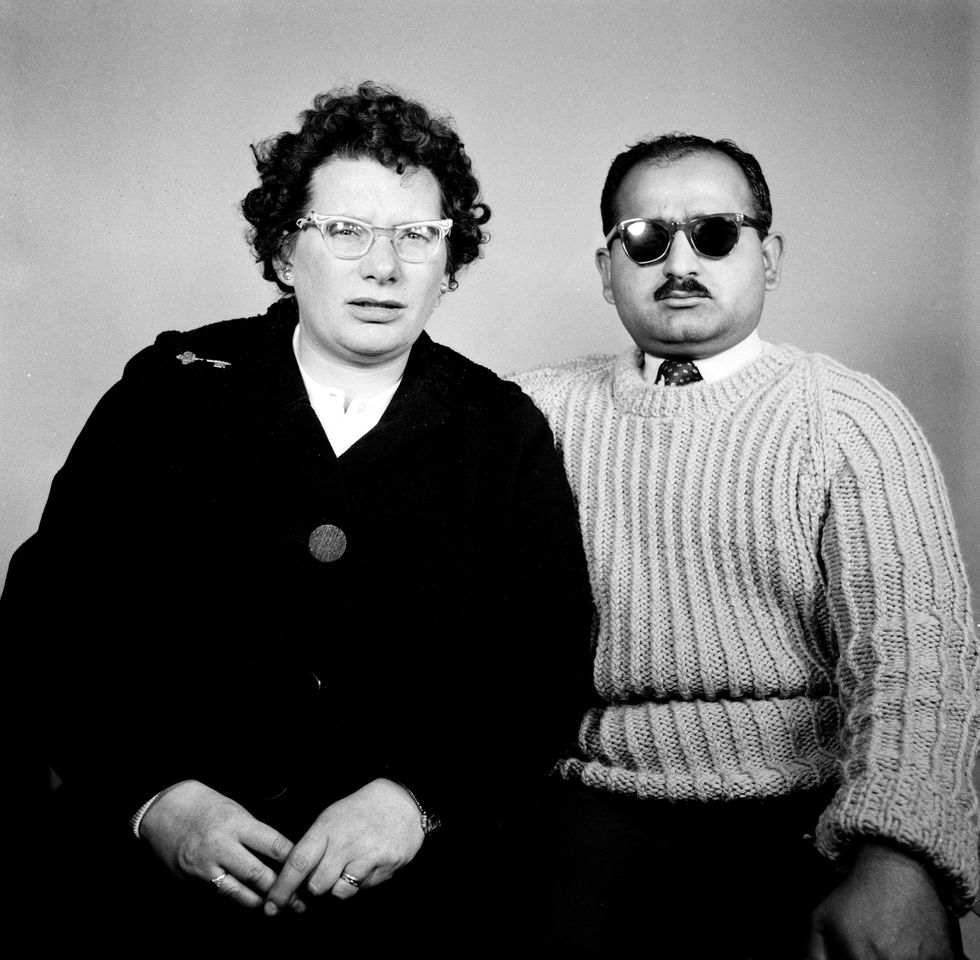Exhibition showcases seven decades of pioneer Asian photographer's work
AN EXHIBITION dedicated to the work of a local Asian photographer in Coventry is a record of immigrants’ lives in the region and also a tribute to the partnership with his wife, his daughter has said.
Photographs taken over a span of seven decades by Maganbhai Patel, known as Masterji, will go on display at the Compton Verney in Warwickshire from February 12 to May 22; this will be the second such exhibition, following a solo one six years ago, when he was 94.
Masterji’s daughter, Tarla Patel, a Coventry-based artist, told Eastern Eye, “My father was the main photographer and the only Indian photographer with an established studio. Later, other studios came along, but he was the main person people actually came to. He recorded the lives of immigrants (from the subcontinent) arriving here as single men, then having families of their own, having children and seeing them grow up.
“In some of the photographs that are in the exhibition, you can see that stage where people’s families are growing and the have an identity in Coventry.”

Masterji was a headmaster in rural school in Gujarat, India, before he moved to the UK in 1951. Like many immigrants who arrived after the end of the Second World War in Coventry, he did manual work and took up a job at General Electric factory. It was here he honed his photography skills, after he joined the company’s photographic society.
Masterji saved up enough to buy himself a Kodak Box Brownie camera and as word of his skills behind the lens spread, he started getting calls for weddings and other social events.
As demand for his services grew, Masterji left his job at the factory and opened Master’s Art Studio.
“He shot a lot of weddings and birthdays,” his daughter recalled, adding, “he took photographs around different backgrounds. Some people didn’t have their own cameras, so he recorded them. It’s an important occasion in people’s lives and those photos are in people’s albums, or they got sent back to families overseas.

“In that sense it’s like a record people are recognising now, it’s not something you actually thought about at that time.” Masterji’s photographs and portraits were socio-historic records of people arriving from India, Pakistan and Bangladesh and who settled down in a new country.
Masterji and his family lived above the studio, where the business began to grow. For Tarla and her siblings, “family life revolved around the studio and home.
“It was a public and a private space as well,” she said.
“In the earlier years, the business was very busy. My mum looked after us kids and the business at the same time. If my dad had lots of weddings and birthdays to photograph, he would be out. So my mum actually played a very big role – in dealing with customers, and also taking photographs and developing them. It was my dad who taught her to take photographs. She later taught my brother, who has now taken over the studio.”
With her multi-tasking skills, Masterji’s wife Ramaben Patel had a huge part in the studio’s success and the exhibition will also have some of her works on display.
Tarla said, “Mum still doesn’t recognise that she was actually very important in the functioning of the business. As I say, it got to a point where my father would be at two weddings on the same day, he’d need to make sure he could do his photography at one and oversee the other in some way.

“I remember, coming home from school, on a Saturday, my mum would be downstairs in the studio, speaking to customers and taking photographs. Her photographs are still in the studio. Her role was big within the community; recording the changes and introducing my brother to photography.”
She added, “I think for a lot of people who migrated to the UK and ended up having small businesses here, working in a shop and raising a family went hand in hand; it was what you had to do.”
However, the family also dealt with racism at the time. Tarla recalled how their shop window was smashed.
“It was an era when the system was against black and Asian people. We had our shop window broken many times, and we didn’t have any help, really, from the police at that time,” she said.
When it came to advances in photography, Tarla said that her father “went with the flow”.
“He was never one who would stick with one format; he would read photography magazines and speak to other photographers. When he went to develop his photographs, he talked to people in different laboratories.
“And that change in technology was something he just went with the flow; he welcomed what was happening. The technology may have changed, but the person never changed,” she said.
The curator at Compton Verney, Oli McCall, said Masterji’s work was a record of the community that arrived in the UK and settled here.
“Masterji was probably one of the first non-white photographers working in this country who made a success out of his business; he was able to sustain the studio across so many decades. The archive of his work is a unique record of the history of the community across those years and it’s not only an interest to Coventry and cities around here like Birmingham, Wolverhampton, but also nationally and internationally important,” he said.
In a way, the exhibition will sum up Masterji’s career and life, with his family having lent some of his personal items for the show, McCall said.

“The exhibition will take a look at Masterji’s career. We begin with his early works from the 1950s and 1960s, along with some really lovely personal items Tarla and the family have lent to us, including the suitcase he brought with him when he migrated to Britain.
“We introduce his personal story of migrating to settling in Coventry and starting a new life in the UK. From there we move through the setting up of Masterji’s art studio in 1969 and then into the 1970s, 1980s and 1990s.
“As they make their way through the exhibition visitors will see how Masterji’s work changed across the decades. It will also give a sense of the south Asian community in Coventry establishing itself and developing and growing across those years,” McCall added.



















